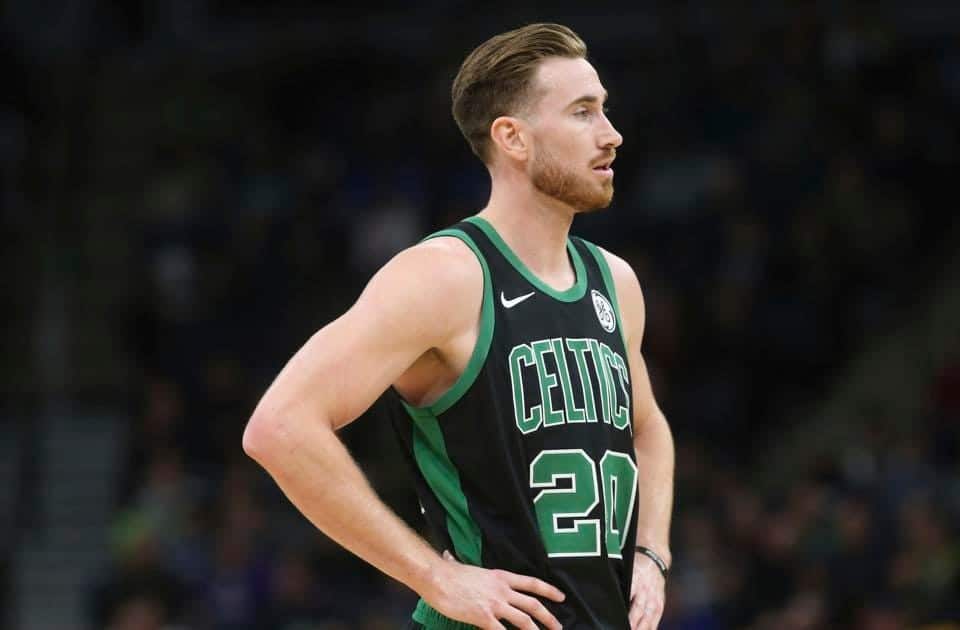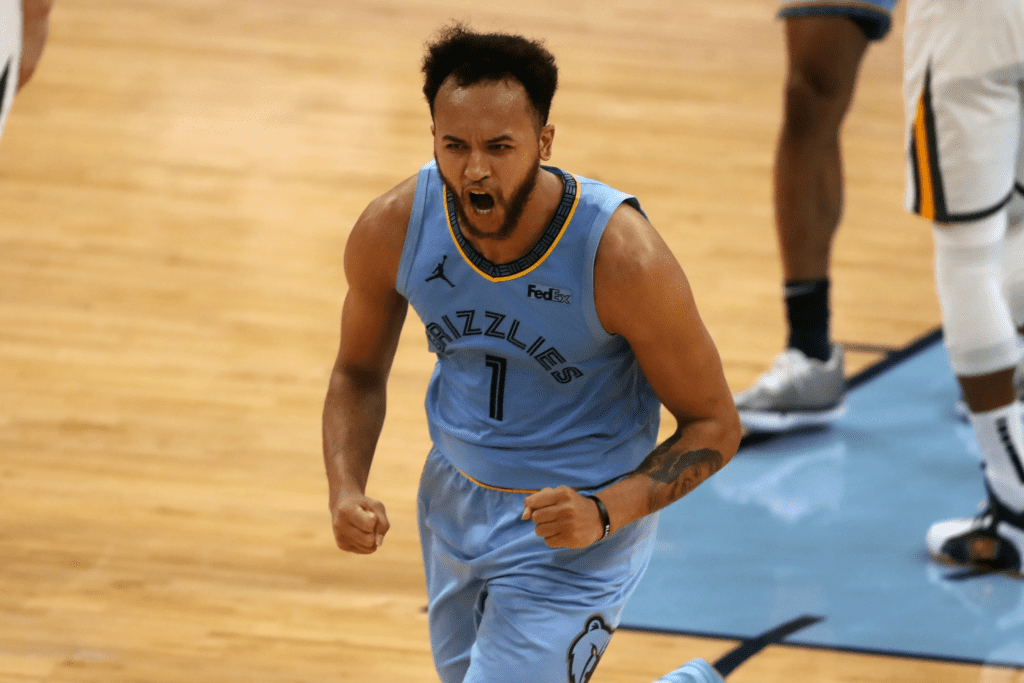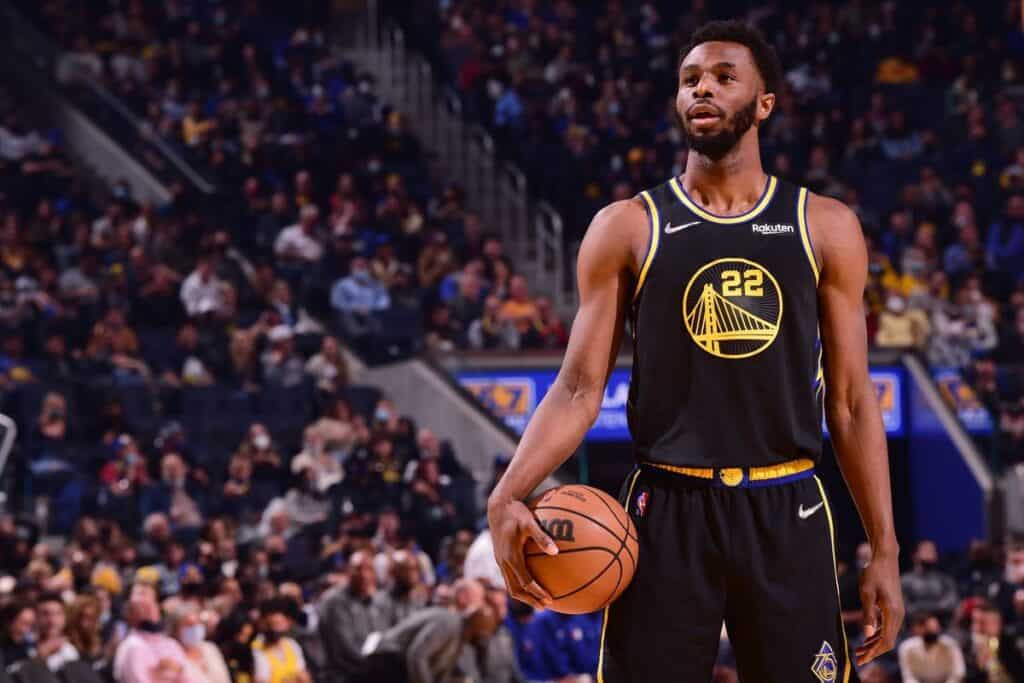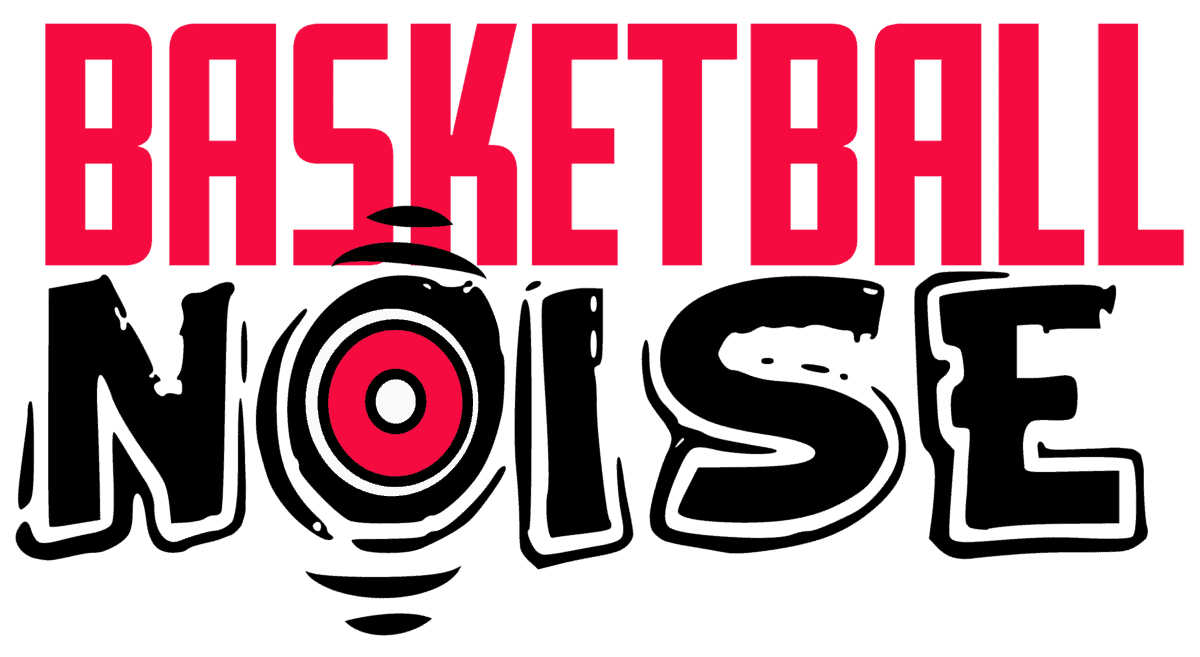Free agency is the most exciting time of the offseason for a lot of NBA fans around the globe. Watching their teams seek out more available talent to sign for the next few seasons always gets the championship aspirations to a maximum. But what of the players themselves? Is it a fun or stressful time? Is there a difference in free agency experience between big name superstars and average role players when they hit the free agency market?
Do NBA Free Agents Get Paid? No, when an NBA player is on the Free Agency market, in effect they are out of contract and will not be paid by an NBA team. In order to ink these deals, players and their agents will often negotiate with few teams to see where they feel most comfortable signing, both personally, financially and from a basketball fit point of view.

While negotiations are going on players will have to rely on existing money paid to them by their former NBA team, endorsement deals and investments to keep the cash flowing. Easier for the KDs of this world than the Austin Rivers.
There are always things going on during free agency which is why the first few days are so hectic. Tons of meetings and signed deals gets everybody rushing to report the news first.
What Happens When An NBA Contract Runs Out?
If you are a signed player in the NBA, and you enter the offseason without an extension, then your deal has run out. There isn’t any reason to panic and beg for a team to reconsider though. You certainly aren’t out of the league yet either. Unrestricted free agents enter something called the moratorium. This is a period that usually runs from August 2nd to the 6th and players are allowed to meet with teams about playing for them next year. The only catch is that no contracts are allowed to be officially signed until the period is up. Officially this gives all teams a chance to pitch a meeting with free agents before a decision is made. After that period ends, players can agree terms with whoever they think has the best offer and sign the negotiated contract.
As you can imagine, for a MVP caliber player like KD, the world is at his feet during Free Agency. He could get a meeting with any team he chooses, his agents could be aggressive with terms and KD himself could even personally influence draft and trade decisions of franchises, just by indicating what situation he might like to find himself in should he sign. On the other hand a journeyman role player like Austin Rivers may be lucky to get meetings with a handful of teams, probably won’t have much say in his ultimate destination. This type of player might find themself under even more pressure financially as their career earnings would be lower, but they will still have many of the same overheads of an NBA star. A wrong move here could cost a journeyman tens of millions of pounds of future earnings. Landing the right contract on the right team, could change them from journeyman to stalwart roll player.

What Does A Free Agent Do When He Signs?
There is always the chance that a Free Agent would eventually decide to sign an extension or new contract with their existing franchise. Meeting with other teams doesn’t preclude this. In the case of a restricted free agent, as opposed to an unrestricted free agent, their home franchise has the opportunity to match the terms of any new contract and retain their services.
Often, entering free agency will indeed mean the player changes Franchise. There are a couple of steps that a player usually takes when he agrees to play for another team in free agency. Packing up and moving to wherever it is that they have decided to sign not being the least of it. Imagine telling your wife and 3 teenage children that you have chosen to leave sunny California for ice cold Chicago just as the Summer draws to a close. They would be leaving their entire life behind.
That is just one part of the process. They also have to get themselves acquainted with the other players on the roster so that they are fitting in comfortably ahead of the new year. Other than that, players are pretty much set. Signing a contract with an NBA team essentially gets worry off your back for the foreseeable future. All a player has to do afterwards is look forward to the new threads that they will be wearing and get settled in.
Massive Free Agent Contracts
When a superstar hits the free agent market, teams don’t approach him with caution. Most of the time, they just throw all the money that they can at him in order to get him to sign a contract with them. After all, a contract with a superstar could take a below average team into a championship contender overnight. Klay Thompson is owner of one of the largest free agent contracts ever signed. Thompson agreed to play with the Golden State Warriors in 2019. It wasn’t classified as an extension because he did in fact hit the open market. He agreed to return on a five-year, $190 million deal. Another free agent that got thrown a whopping amount of cash was surprisingly Tobias Harris. Harris likely wasn’t the name that you were expecting here. He was offered a $180 million contract to play for the Philadelphia 76ers. He was supposed to remain with the Los Angeles Clippers that year but his desired money got him shipped to the 76ers. When he hit free agency, Philadelphia didn’t want to lose him for nothing, so they nabbed him. Finally, we have to mention Kevin Durant here. Not only did Durant get a massive free agent deal from the Golden State Warriors when he went there in 2016, but he also got a lot from the Brooklyn Nets 3 years later. This was the most recent free agent contract for Durant. It was a four-year, $164 million deal that was signed right alongside Kyrie Irving to take Brooklyn from a fringe playoff roster to a championship contender. These are just some of the largest free agent contracts that have been handed out over the years. I would expect some more huge ones to be given out in the upcoming seasons as well.
What is a sign and trade NBA contract?
The NBA is a salary cap driven sport. There are many rules in place about how much players can be paid and how big the player wage bill of any team can be. With that, there is often a situation where a player will in fact sign a contract extension with their former team on the understanding that they will immediately be traded to the franchise of their choosing. The details of this would have been negotiated before any commitments are made. The benefit to each party is as follows;
The Player: With modern salary structures, a player can often sign for more money or years with the team they had their previous contract, than what a different team can offer. So signing and being traded can often be more lucrative for them. In addition, because of the team salary cap, it also means they could end up playing for a team that otherwise do not have enough space on their salary cap to bring him in.
The Old Team: The team the player is leaving faces the pit of losing an asset for nothing in Free Agency. This could be bad for several reasons. Firstly, if they are not a classic free agent destination, they may fear they cannot find a good player to replace the one they are losing in free agency. Secondly they are losing a trade asset, so they may not have much left that they want or would be able to trade to replace the player. Finally, they may have contract extensions for other players coming up that will mean they actually don’t have cap space left to sign a new free agent. By signing and trading the player, they get assets back that could be viable pieces for the team or future trade assets. Usually the wheels of a sign and trade are greased with future draft picks.
The New Team: It may seem crazy to choose to give up assets for someone that is able to sign for you without costing you. There are some things to think about, the player may only want to sign a contract for the max deal available so a sign and trade may be the deal breaker. As mentioned you may not have enough cap space to sign them outright anyway, so a sign and trade may be the only way to get them into your Franchise.
The KD to the Nets signing that we mentioned earlier is a great example of how a sign and trade benefits everyone. This is how the deal went down;
- The Warriors agreed to trade Andre Iguodala and a 2024 top-four protected first-round pick to the Memphis Grizzlies, he was absorbed into their cap space and famously never played for them. Along with KD the Warriors sent the Nets a top 20 protected first-round pick for 2020. This did not convey so they will send Brooklyn a 2025 second-rounder.
- The Nets sent to the Warriors D’Angelo Russell, Treveon Graham, and Shabazz Napier.
Later on the Warriors traded Russell, Omari Spellman and Jacob Evans to the Minnesota Timberwolves in exchange for Andrew Wiggins, a 2021 top-three protected first-round pick and a 2021 second-round pick. Wiggins has become a valuable part of their title chasing team in 2022, essentially replacing Durants minutes, if not his protection or star power. Iguoudala has since resigned with the Warriors.
So KD got to go where he wanted, the Nets lost Allstar PG Russell but were able to then sign Kyrie Irving into the cap space he vacated. The Warriors didn’t lose KD as an asset, eventually getting back a piece in Wiggins who they feel can help them push for titles. A win, win, win, win, win.

One-Year Deals Are Just As Important
You don’t have to sign some ridiculously expensive NBA contracts when you hit the free agent market. Sometimes, you simply need to go somewhere you want to win. There are numerous examples of players signing one-year deals just so that they can win a championship with their new team before locking into a larger deal. Dwight Howard has been doing it the last few years with different teams and signed one with the Los Angeles Lakers in the leagues last free agent market. Other role players like Kent Bazemore and Wayne Ellington inked one-year deals as well. Ironically, all three of those players went to the Lakers in 2021, which dares to disprove the importance of 1 year contracts.l. However, If you aren’t convinced that one-year free agent deals are essential just yet, then maybe hearing that Lou Williams signed one as well could change your mind. Williams is one of the most gifted scorers to ever come off the bench consistently and he chose to stick with the Atlanta Hawks for one more season. The deal gets him some nice money, he gets to stay with his desired team and he now has the possibility of leaving next year for more money if he thinks it won’t work out down the line. There are many more smaller contracts that go unnoticed but they are just as valuable to some players than the massive ones that we see plastered on social media. Plus, they could just be as effective in minor roles. Look at the job that Austin Rivers has done with the last few teams he has been on. Rivers is a talented point guard that can seemingly help any team despite being on a small contract.
